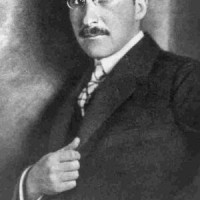This week, the theme is one of reference: nods to other works, incorporation of other continuities, tributes overt and subtle. These books range from horror epics to intimate memoirs; at least one also features a video game based on the lives of the Brontë sisters. So there’s that.
#tobyreads: I Know Nothing About Poetry. I Am Reading Some Poetry.
The fact that I spent much of my twenties and — hell — several years in my thirties not reading much poetry has come back to haunt me. There are books I’ve had recommended to me where I’ve long since forgotten the title, and I can’t think that asking about them now will yield much. (“Remember a book you were reading in late 1999? It was a poem, and long, and the cover had….blue on it?”) But much like any […]
#tobyreads: Criticism and its Upending — Wayne Koestenbaum, Rosalind E. Krauss, and Gabriel Blackwell Provide Unexpected Views on Art
And in some years, I notice trends in my own reading. Sometimes I’ll discover the work of a particular author and end up reading almost everything they’ve written. (This has happened recently with both Geoff Dyer and Javier Marías.) This year, while I certainly suspect I’ll engage in similar behavior, I’m also planning to focus on specific areas of writing: specifically, art writing and poetry. Why? Because I know far too little about either, and that doesn’t sit all that […]
#tobyreads: On Cinema, Generations, and Stories Told — Evocative Work From Matthew Specktor and Amy Lawless
When done well, there’s something I find particularly compelling about books that can weave the weight of years into their narrative. Whether it’s a biography that slowly begins to allocate a summary of its subject’s life as that life begins to wind down or an account of the later years of a fictional character that we’ve followed since childhood, there’s an undeniable power in these moments. The best books of this type give us the sense that we’ve come to […]
#tobyreads: Variations on Seclusion From Fiona Maazel, Matt Bell, Stefan Zweig, and Harry Mathews
There can be a literary virtue in seclusion. Whether a long narrative is constrained to a reduced number of characters or settings (what I like to call the “person in a room talking” novel) or making use of themes related to isolation, memorable results are capable in either instance. Loneliness and solitude are essential elements to the human condition; they can be as liberating as the feeling of walking alone through a city that’s not your own, half-buzzed on coffee, […]
#tobyreads: Lost Correspondence: Dispatches From Elena Ferrante, John McPhee, Harry Mathews, and Lawrence Weschler
Four books to cover today: two works of nonfiction and two novels, one of which is deeply rooted in reality and one of which is…not. At their core is a shared fondness for transmissions: letters sent from continent to continent; artists whose work clamors for revival (or may require a late-career boost); lifelong bonds that abruptly cease to exist. Whether the setting is post-war Italy or the Soviet Union on the cusp of its dissolution, these books evoke places on […]
#tobyreads: Lonesome & Crowded — Rudolph Wurlitzer, J. David Osborne, and Gretel Ehrlich Send Dispatches From the West
I was born in upstate New York. Eleven months later, my parents moved to the middle of New Jersey, where I came of age. I went to college in Manhattan, moved back to New Jersey for a couple of months, and then moved to Brooklyn. I’m not proud to say this, but the longest stretch of time I’ve spent outside of the New York metropolitan area has been two weeks in the late summer of 2006. Sometimes, when I’m at […]
#tobyreads: Geography Revisited — Brian Francis Slattery, Francesca Lia Block, and Nicola Griffith Rewrite Familiar Landscapes
Fiction has a particular ability to rework familiar places into new iterations of themselves. In some cases, this can be by presenting alternate or fantastical versions of a certain space; in others, it can come through pushing that space into the future (or pulling it back into history.) The three books discussed today reveal new sides to cities and towns we thought we knew — and make for good, sometimes moving reading.






